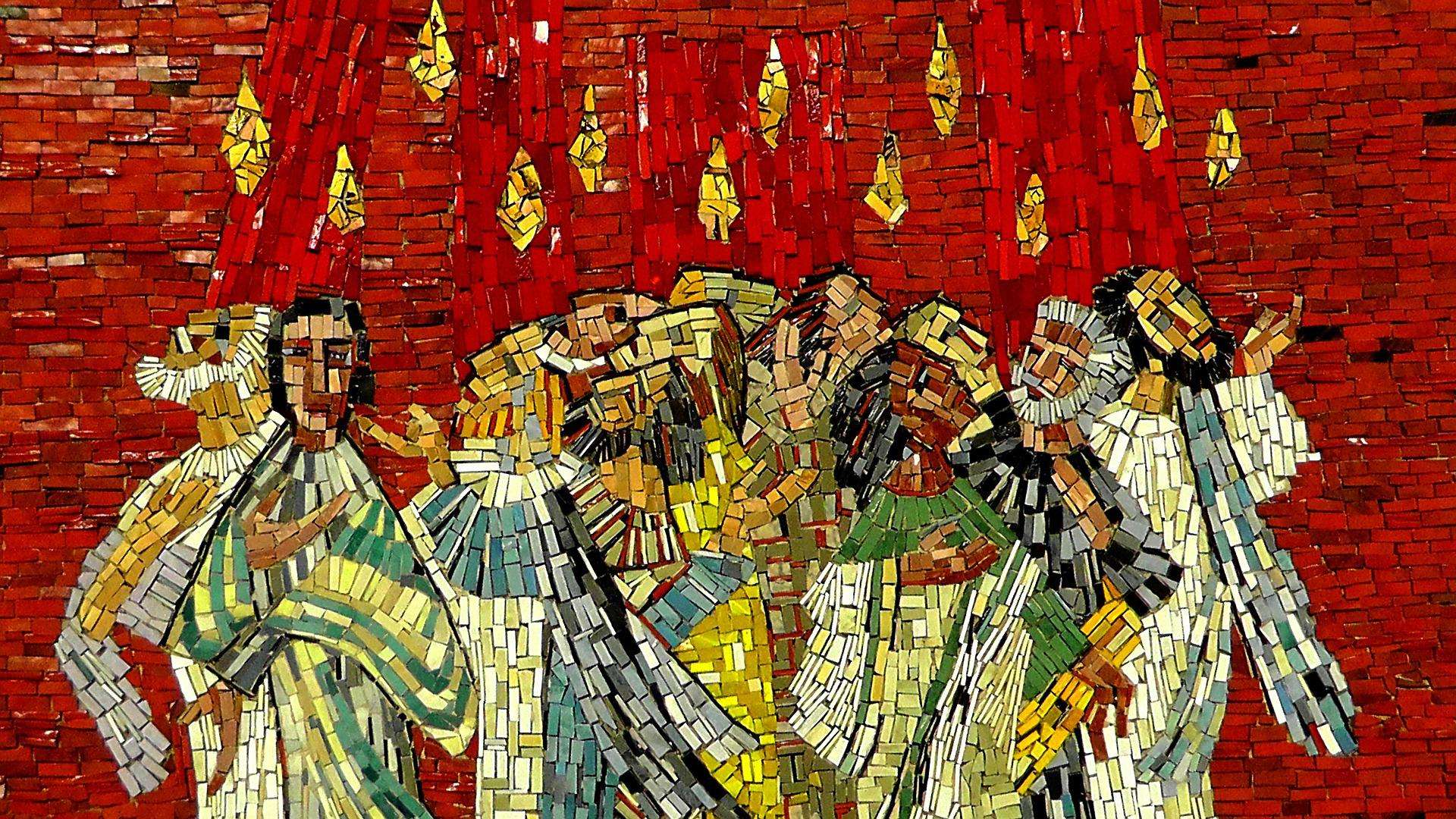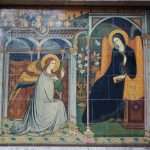Recently, a prominent and well-respected Catholic leader shared on Facebook a link to a blog dedicated “to honestly, fraternally, and charitably examine the relationship between The Charismatic Movement and Catholic Tradition for the sake of truth and the good of the Church.” The site provides a curated set of resources to learn more about various aspects of the Charismatic life of the Church both from Catholic and Protestant authors and leaders. My initial intrigue quickly changed to frustration as the welcome article posted on the front page presented a confusing and seemingly biased perspective. I’m still not entirely sure what the unnamed authors ultimately hope the website accomplishes, but I wanted to examine the welcome post, since it paints a different picture of the Church’s charismatic nature from what I’ve learned from Sacred Scripture, papal writings, and lived experience.
To avoid the risk of appearing to cherry-pick and quote things out of context, please consider reading their article first, as my review simply comments on the sections I find most confusing or problematic. The original citations are boldened; my responses are not.
“Charismatics seem to be everywhere these days. If you yourself are not a charismatic, chances are that at least some Catholics you’ve come to know over recent decades have turned out to be charismatics. They are often outgoing and friendly. They smile a lot.” Being filled with the power of the Holy Spirit and seeing the fruits of the Spirit born in your life is not a personality trait. It’s not a superficial expression of emotion, but an internal working of God that understandably affects behavior but cannot be defined by it. Also, to be Catholic is to be filled with the power of the Holy Spirit, gifted with charisms, and empowered to live a life of holiness and mission. More clearly defining what it means to be a “charismatic” would help the entire discussion, because often the term is used to identify members of a movement (the Catholic Charismatic Renewal) who prefer certain worship styles, songs, and pastoral strategies rather than a description common to all the baptized.
“Love of Scripture, zeal for the Gospel, and eagerness to share one’s faith are admirable qualities in themselves.”—True, but shouldn’t all Catholics possess these “qualities”? These don’t seem like a list reserved for Charismatics but a high call for everyone.
“Indeed, there are numerous personal testimonies that experience with the charismatic movement has been the beginning of a serious walk with God or rediscovery of faith.”—Certainly the Holy Spirit instigates conversions and launches the believer on a new path, but a life in the Spirit doesn’t eventually run out or become too juvenile. The Holy Spirit is not a fad or just for beginners; rather, the more we grow in holiness, the more it means the Holy Spirit is working.
“Yet for all the enthusiastic personal testimonies, there are just as many bad experiences that often lead people away from God and the faith entirely.”—Certainly, immoral leadership, bad pastoral judgment, and even wicked actions have emerged in and through the Church’s rediscovery of her charismatic dimension, but to suggest that an equal number of people have been harmed as have been helped over the past fifty years is unsubstantiated and reveals an unhelpful bias.
“While there is much to admire about many charismatics as individuals, many Catholics nevertheless have serious misgivings about charismatic beliefs and practices.”—I’m not sure what is meant by
“charismatic beliefs and practices.” Anything not found in Catholic teaching and not approved by the magisterium should absolutely be avoided and corrected. Here is a good opportunity to be specific about whatever the authors feel isn’t consistent with Catholic Tradition and Sacred Scripture. Instead, by speaking in generalities, it allows the reader to imagine particular stereotypes of “charismatics” that no doubt reveal improper and correctable behavior within certain circles but fails to remember and celebrate the fundamental teachings of the saints, the popes, and most importantly, Sacred Scripture on every Catholic’s life in the Spirit.
“The charismatic movement is enjoying its day in the sun nowadays, but what also must be kept in view for the long term are the tried and true traditions that have served the Church well for centuries and will continue to be foundational for Catholic faith and morals long after contemporary movements of enthusiasm are supplanted by whatever is the theology du jour a hundred years from now.”—There is nothing more traditional than living in the power of the Holy Spirit. The descent of the Holy Spirit on Pentecost birthed the Church and sustains, purifies, and inspires her today. The power of Pentecost is “tried and true.” To call the rediscovery of the charismatic life of the Church a “contemporary movement of enthusiasm” runs the risk of mocking a genuine mercy from God, or as Pope Francis called the charismatic renewal, “a current of grace in the Church and for the Church,”[1] or Pope Paul VI’s “chance for the church.”[2]
“To make matters worse, substantial Catholic analyses of the charismatic movement were nowhere to be found when Catholics first got involved. The term ‘charisms’ is not even mentioned in the new (1983) Code of Canon Law.” This is untrue. In 1971, Fr. Edward O’Connor, a respected theologian, wrote a substantial analysis of the charismatic renewal called The Pentecostal Movement in the Catholic Church. In 1969, Kevin and Dorothy Ranaghan wrote a well-received analysis called Catholic Pentecostals. Also in 1969, the National Conference of Catholic Bishops “affirmed the good fruits of the renewal” when referring to the growing charismatic movement. Additionally, Pope John XXIII famously invited the entire Church to pray for a new Pentecost before the start of the Second Vatican Council. Also, and most significantly, Sacred Scripture is fundamentally Catholic, and theologians throughout the entire history of the Church have been wrestling with the reality of Pentecost, signs and wonders, evangelical fervor, and a greater release of the Holy Spirit through the sacraments and personal revelations. I’m not sure why it matters at all that the term “charisms” isn’t in the 1983 Code of Canon Law. That same argument could be applied to the term “purgatory” not being found in Scripture; that doesn’t mean we don’t believe it!
In light of the deep historical roots of the Catholic Faith, in light of the profound traditions of mystical and ascetic theology, in light of the fact that a Catholic convert like Cardinal Newman could declare that “to go deep into history is to cease to be Protestant,” it is particularly distressing to meet Catholics today whose practice of the faith seems so utterly devoid of historical consciousness as to suggest that little matters beyond Bible study, extemporaneous prayer, and their own experience of a personal relationship with Jesus. Why is it that charismatics often seem to regard the Church, canon law, clerical authority, sacraments, and the rich theological, philosophical, and liturgical traditions of the Church as secondary, if not incidental or even deleterious, to their practice of the faith? Why do they so often seem to elevate extraordinary expressions of spiritual experience, certain forms of prayer, and certain ‘charisms’ (like healing, ‘prophecy,’ ‘words of knowledge,’ and exorcism-like practices) above the ordinary means of grace provided by our Lord through his Church? Once again, an unsubstantiated assertion. These statements create a dichotomy that doesn’t need to exist. A mature Catholic disciple reads everything described above and says, “I want it all.” We desperately need the sacraments and a personal relationship with Jesus. We need to individually read the Word of God and we need the Church to help us interpret it. We need institution and movement. We need asceticism and signs and wonders. Anyone who doesn’t see and accept the full scope of what Jesus offers us through his Spirit in the Church needs to be corrected. As Catholics, we are all called to be charismatics (operating with charisms) and we are all called to be sacramental. Pope Benedict XVI said, “We can, therefore, rightly say that one of the positive elements and aspects of the Community of the Catholic Charismatic Renewal is precisely their emphasis on the charisms or gifts of the Holy Spirit and their merit lies in having recalled their topicality in the Church.”[3]
One hunch is that what attracts so many Catholics to the charismatic movement is not so much any “new Pentecost” or “springtime” that the Church has allegedly experienced since Vatican II, but a withering spiritual deprivation suffered in the wake of the Council, amplified by a parching thirst for something more than the shallow puddle of spiritual resources they were left with after the legacy of devotional, liturgical, spiritual, and theological traditions were cast to the four winds, leaving them in a spiritual wasteland.
Is it possible that a new Pentecost is part of God’s answer to the so-called “withering spiritual deprivation” and “parching thirst”? While not the purpose of this critique, and this would open a different can of worms, the authors clearly reveal a strong negative perspective on the Second Vatican Council. This perspective tends to lend itself to a Catholicism in desperate need of reclaiming what has been lost. I agree there are several things that the Church needs to once again rediscover that characterized the pre-Vatican II Church (beautiful architecture, reverent liturgies, a clear sexual moral ethic) but that desire should be in harmony with an openness to what the Spirit is doing in the Church today, and faith that the Spirit’s movement now should not be discounted. In 1998, Pope Saint John Paul II remarked on one of the true fruits of the Council, saying, “This was the unforgettable experience of the Second Vatican Ecumenical Council during which, under the guidance of the same Spirit, the Church rediscovered the charismatic dimension as one of her constitutive elements: ‘It is not only through the sacraments and the ministrations of the Church that Holy Spirit makes holy the people . . . he also distributes special graces among the faithful of every rank . . . makes them fit and ready to undertake various tasks and offices for the renewal and building up of the Church” (Lumen Gentium, n.12).[4]
Overall, the welcome post moves the reader towards skepticism, critique, and a thinly veiled distrust of “charismatics” while positioning this fundamental aspect of the Catholic Church’s spirituality as a personal preference, a passing fad, and a superficial response to very real decay present in our parishes and communities. It fails to account for the decades of magisterial teaching from all of the recent popes and seems to ignore the various bishops’ conferences around the world that have both critiqued and blessed the charismatic movements within their dioceses. For a more balanced view of these issues, please check out the Charis International website, which contains a robust series of FAQs. Ralph Martin’s 2011 article for LOGOS is another place to look. Living in and through the power of the Holy Spirit is not an optional extra for the Catholic disciple, and we need to do a better job talking about it.
[1] Catholic Charismatic Renewal-A Grace For Us All – Articles – Catholic Charismatic Renewal (ccr.org.uk)
[2] SCRC Charismatic Renewal | About Catholic Charismatic Renewal
[3] To participants in the 13th International Conference of the Catholic Fraternity of Charismatic Covenant Communities and Fellowship (October 31, 2008) | BENEDICT XVI (vatican.va)
[4] The Holy See – Roman Curia – Pontifical Councils – Pontifical Council for the Laity (vatican.va)








Well done Pete
Thanks for a clear response to this unsubstantiated attack on the Charismatic Renewal.